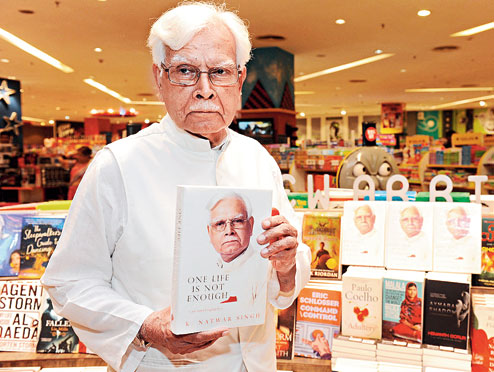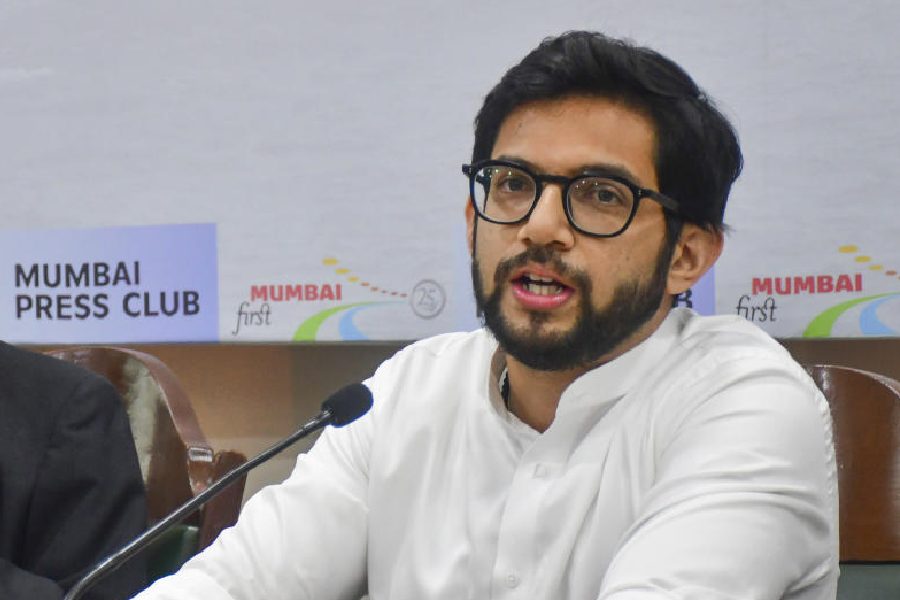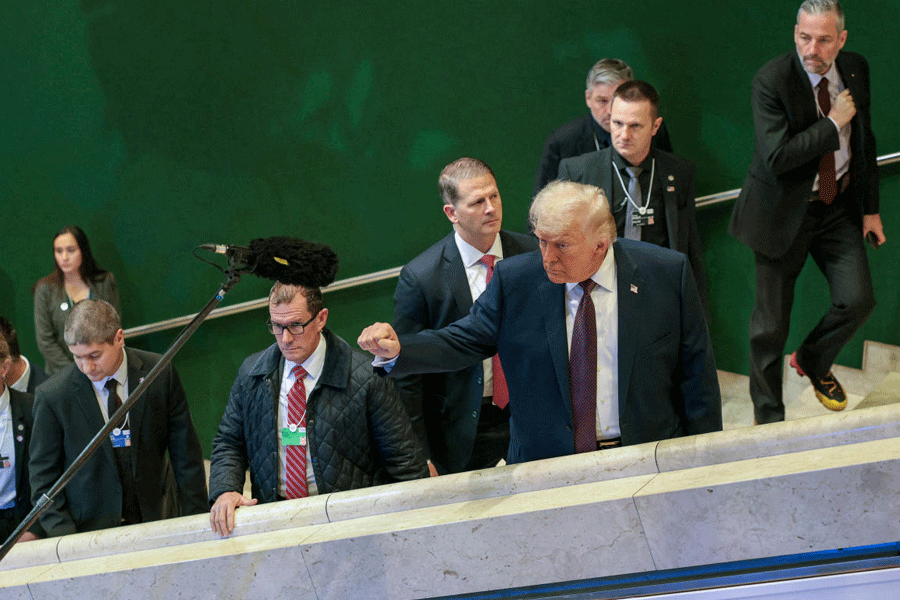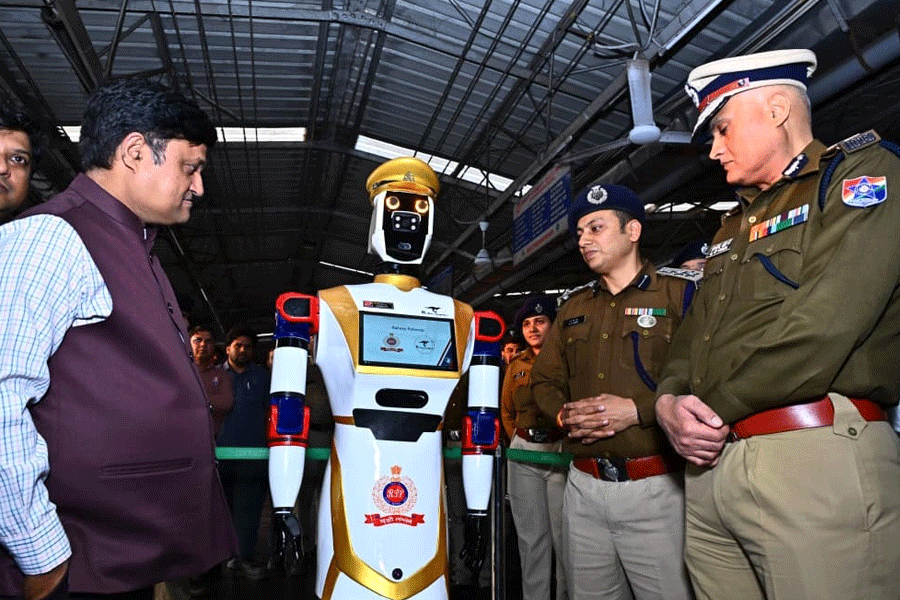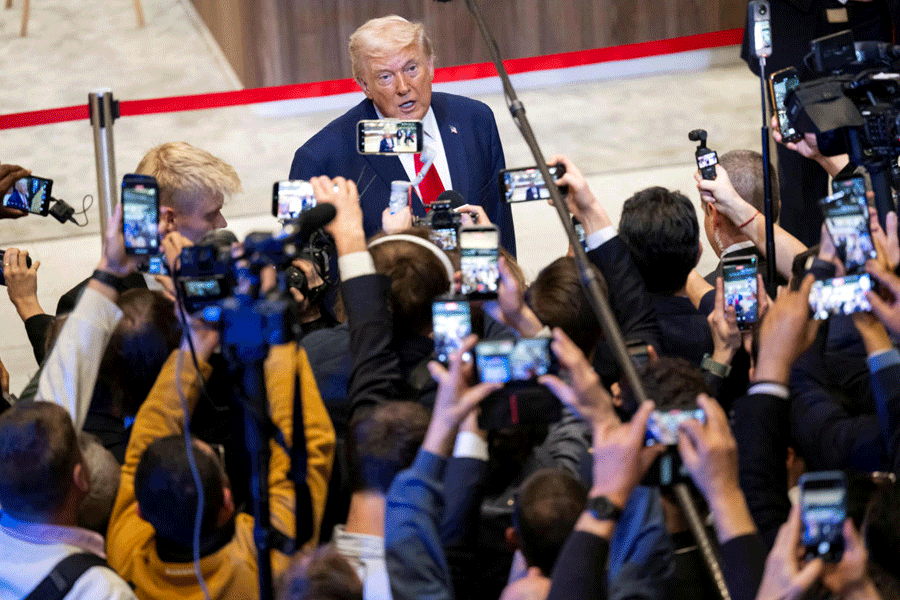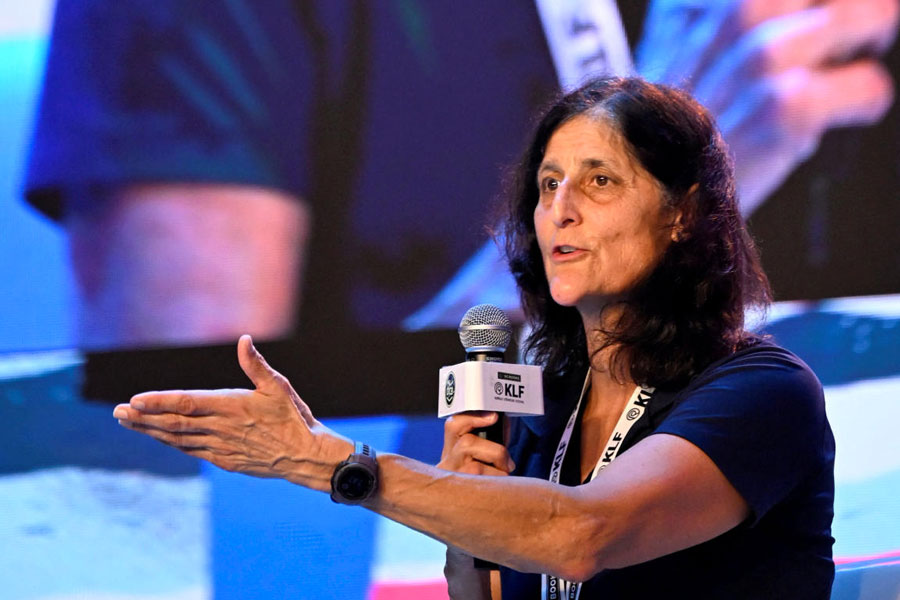 |
| K. Natwar Singh at the launch of his autobiography at Starmark, South City. (Sanjoy Chattopadhyaya) |
On the evening of September 5, the city had the chance to hear a self-confessed “lover of solitude” who “seldom gets provoked”, speak.
Former Congressman and foreign minister K. Natwar Singh sat in conversation with historian Rudrangshu Mukherjee on the occasion of the Calcutta release of his autobiography.
When asked whether he had any regrets — given that his autobiography is titled One Life Is Not Enough — Singh said he had “many”.
“For one, I am distressed at the lowering of the levels of our political dialogue…. I grew up when Jawaharlal Nehru was at his peak, and I remember the stellar debates conducted by the likes of Shyama Prasad Mookerjee, Hiren Mukherjee and even Madhu Limaye and Lohia.”
Singh feels the three areas India has failed in are education, health and judiciary. “More than 90 per cent of the citizens in countries such as China and Sri Lanka are not just literate, but educated. India’s figures are much lower, and even among them, most are not educated, they are just literate.”
As for judiciary and health, he said: “It takes 20 years for a civil case to be concluded… and in hospitals, patients don’t get beds; they have to pay bribes, failing which they are made to lie on the verandah.”
Asked about his take on growth, Singh shot back: “For whom is this growth, and who manages it? The quality of life of even middle-class Indians is unimpressive. The conditions in schools are appalling.”
He spoke of how China was “cleaned up” under Mao’s leadership. “No one used to spit or make a nuisance of himself in public in China,” Singh recalled what he saw in China while being posted there as a diplomat in 1956.
“I am not saying India should have a regime such as China’s, but basic things are lacking in our country.”
Mukherjee observed that while Singh — who was forced to quit the government in 2005 and later the Congress after the revelations of the Volcker report — had been critical of Sonia Gandhi in the book, there was nothing “scandalous” revealed about her. What, then, had Sonia and Priyanka reportedly wanted omitted from the book when they visited Singh before the release?
The veteran politician evaded a reply. “I made it clear to Priyanka when she visited me that nobody could edit the book and that I had had a very hard time thanks to her mother. Apart from her immediate family, no one had been closer to Sonia Gandhi than I had been, and so what was done to me was very painful,” was all he would say.
Mukherjee asked why Singh did not reveal the identities of three of Rajiv Gandhi’s ministers whom he has described as “a team of ignoramuses with inflated egos… one claimed to be a socialist whilst one was an inept political wheeler-dealer. A third was a meddling nuisance.”
The author said: “Of the three, two are dead and one is dying. So they should be left in peace.”
Singh was also evasive when asked why, in his account of Rajiv Gandhi’s trip to China, he had not clearly stated that then foreign secretary K.P.S. Menon had threatened in the course of the visit to resign and return from Beijing.
He did, however, admit upon Mukherjee’s questioning that P.N. Haksar — who had been principal adviser to Indira Gandhi before falling out with her and reportedly sent on a secret mission to China before Rajiv Gandhi’s visit — “had no locus standi on anything”.
With regard to Menon, Singh said: “In China, when talks took place, Rajiv did not take in C.V. Ranganathan, who was India’s ambassador to Beijing, or K.P.S. Menon. Menon objected very strongly to the fact that Gopi Arora, who was not from the foreign service, was taken in by Rajiv. He told me he wanted to quit, I asked him not to. By this time, Rajiv had realised the faux pas he had made. He was a fair-minded, decent human being.”
Does a fair-minded prime minister send someone without any locus standi on a visit to represent India as well as sack a foreign secretary (A.P. Venkateswaran) in public? “I know how much Rajiv regretted his blunder. The backlash against him was very strong,” Singh said.
Singh has worked with three Gandhis: Indira, Rajiv and Sonia. How would he rate them? “Indira Gandhi is far, far ahead of the other two. She made two great mistakes — the Emergency and Operation Bluestar. For Bluestar, Indiraji’s instructions were that the Harminder Sahib and the Golden Temple were not to be fired at. These orders were disobeyed. In the shootout, Bhindranwale was killed. The same result could have been achieved if the supplies of electricity, food and water to the temple had been stopped. The day the Golden temple was fired at, she knew she would be dead within a few months.”
Indira Gandhi’s troubles, Singh said, began after Haksar left. And Haksar, he claimed, was forced to leave.
“When Sanjay Gandhi was starting the Maruti venture, the land that was taken belonged to poor farmers. This drew a lot of criticism. As far as I know, Haksar told Indiraji that she must choose between being the Prime Minister and Sanjay’s mother. This was conveyed to Sanjay and he made sure that Haksar left.”
As a final observation, Mukherjee said the autobiography could be criticised as being “self-justificatory”.
“Why should one write an objective autobiography?” asked Singh. “It will be a boring thing. Mine is hellishly subjective. Objectivity and restraint have a paralysing effect on autobiographies.”

